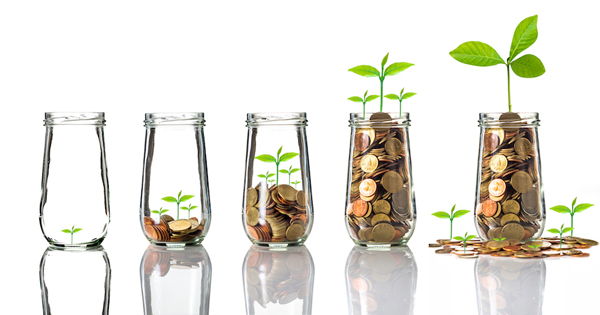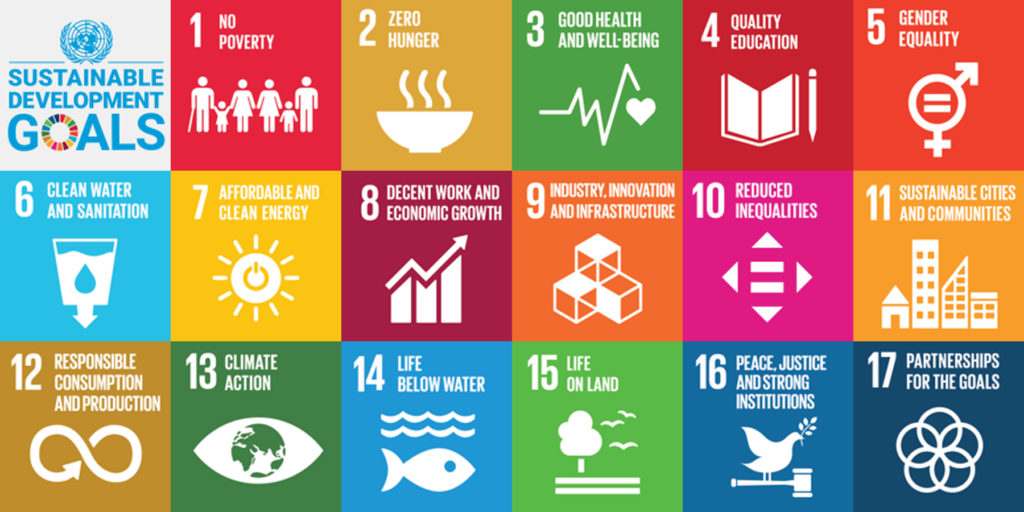By Karin Mizgala, co-founder and CEO Money Coaches Canada
 We invest to secure our future, and for years that predominantly meant securing our financial future. With that end in mind, a significant criterion for choosing an investment was its financial performance. But for many investors, there has been an evolution of what securing our future actually means.
We invest to secure our future, and for years that predominantly meant securing our financial future. With that end in mind, a significant criterion for choosing an investment was its financial performance. But for many investors, there has been an evolution of what securing our future actually means.
More and more of my clients are looking for investments that are aligned with their values. The popularity of socially responsible investments has increased over the years. Even mainstream investment companies are including Environmental, Social and Governance (ESG) filters when choosing stocks and bonds to invest in. Many use the research and scoring information from the company Sustainalytics.
But being socially responsible is no longer enough for many investors who are increasingly interested in impact investing.
What is the difference between socially responsible investing and impact investing?
The phrase socially responsible investing started popping up in the 1960s. Quite simply it means not investing in companies or organizations that are involved with products or activities that are in opposition to your personal values.
The investor’s goal is still to make the best possible return for their investment, but in ways that won’t put them in conflict with their conscience. For example, many people want to steer their investment dollars away from gambling, alcohol, and tobacco. What sorts of investments are off limits is subjective to each investor.
 But what began as a straightforward strategy to bypass investments an investor deemed detrimental to society; has developed into something wide reaching and powerful.
But what began as a straightforward strategy to bypass investments an investor deemed detrimental to society; has developed into something wide reaching and powerful.
Impact Investing is a growing investment movement that is most certainly socially responsible, but is much more actively engaged with creating good, than passively avoiding doing harm. This isn’t a surprising development, Canadians, and many people across the world, are much more attuned to the impact humans make on this planet and on each other, and want to do better.
Historically, companies that were not purely financially driven were not as “popular” with investors. Which stands to reason, if your intent is maximizing your return. So funding for innovative education, healthcare and environmental companies often came from government grants, donations from foundations and organizations or private investors (who shared their vision, and were therefore willing to accept higher risk and lower returns). But attitudes are shifting.
Chartered financial analyst (CFA), Mike Thiessen, of Genus Capital Management in Vancouver defines impact investing as investing with the intent to create innovative and beneficial solutions to social and environmental challenges without sacrificing a solid financial return.
Thiessen says impact investing is about seeking out companies that have a mission to create a positive impact, such as innovative health care companies, that often create good returns for investors while providing solutions to health issues around the world.
Did you know that our Investment Report Card is helping Canadians move forward with their investment portfolios with confidence? See how it can help you.
What brought on this shift?
We need change, especially environmental change, and we need it now. We need change to meet healthcare and energy needs. We need ways to support vulnerable populations (seniors, new Canadians, and those with disabilities). The list goes on. But when change relies mostly on governments and altruism, it moves slowly.
 More and more Canadians want the opportunity to use their money to be part of the change. To be instrumental in creating change sooner rather than later. And more and more companies are paying attention to that interest.
More and more Canadians want the opportunity to use their money to be part of the change. To be instrumental in creating change sooner rather than later. And more and more companies are paying attention to that interest.
“When investors are demanding better reporting around things like greenhouse gas emissions,” says Thiessen, “companies are going to try to figure out how to reduce those emissions.”
What are the financial return expectations of impact investing?
Just like companies that want to improve their environmental footprint or to expand their positive impact to attract socially conscious investors, companies that have mainly focussed on their impact mission are becoming more conscious of the need to create a worthwhile return for investors. Both scenarios create a win/win for investors and investees.
The expectations of impact investors are as individual as the investor. Some search out competitive market-rate returns while others are satisfied with somewhat lower returns in exchange for higher social or environmental impact.
How do you determine an investment’s impact?
 The United Nations has developed a list of 17 Sustainable Development Goals (SDG) with objectives that, if achieved, will greatly impact the well-being of people and the planet. How well an investment serves the aims of an SDG determines its potential impact.
The United Nations has developed a list of 17 Sustainable Development Goals (SDG) with objectives that, if achieved, will greatly impact the well-being of people and the planet. How well an investment serves the aims of an SDG determines its potential impact.
“At Genus we’re developing the concept of a net impact portfolio,” says Thiessen. “We look at the positive and negative impact you have in your portfolio, and combine them for one net impact metric. For example, a lot of energy companies are starting renewable energy segments of their portfolios but also have coal utilities as part of their assets and that would have more of a negative impact. So if your portfolio has 30% positive impact, 10% negative impact and the rest is neutral, you have 20% net impact.”
Are impact investments available in Canada?
Socially responsible investing (avoiding investments that are in opposition to your values), is easier to achieve than impact investing for the average retail investor. The reason being, that most retail mutual funds and ETFs are not being built with impact investing as a goal. Add to that, the fiduciary duty of financial planners and advisors to generate the highest rate of return possible for their clients. Impact investing is a mind shift that is still not quite at the tipping point into the mainstream, but opportunities do exist.
Here’s a list of some Canadian high impact investments. You can also find Impact and Socially Responsible investment options through the Responsible Investment Association.
“Europe has been far ahead of us in terms of impact investing,” says Thiessen. “Our (Genus) public equity impact fund was released almost six years ago; it was the first public equity impact fund in Canada. So it’s rare to have a six year track record, a lot of other asset managers are just starting to get into impact investments. Our first few years there wasn’t a lot of interest, but lately that has really changed and I think it’s going to change even more going forward. In the first quarter this year it was our best performing fund, it beat its benchmark by over 9%.”
The future of impact investing
If an interest in impact investing was simmering before the world was plunged into the COVID-19 pandemic, it stands to reason that this global moment will further strengthen the idea that we all need each other to “fix” the world.
 “The growing interest in impact investing has been quite inspiring,” Thiessen says. “There have been some bigger foundations that want to move into 100% impact investments, and for years that would have been pretty much impossible to do, but now there are more options.”
“The growing interest in impact investing has been quite inspiring,” Thiessen says. “There have been some bigger foundations that want to move into 100% impact investments, and for years that would have been pretty much impossible to do, but now there are more options.”
He has also noticed a lot of interest in impact investing from millennials; a generation that will be inheriting billions in wealth over the next decade.
“After this pandemic,” says Thiessen, “I think people are going to be more attracted to investing in technology and solutions to big problems. They are going to want to be able to make a difference.”
If you’re rethinking your investment strategy given recent events, you’re not alone. Investing will always require a good return to make it sustainable for all but philanthropists, but the world is shifting away from the paradigm that making money and doing good are mutually exclusive.
This is a great time for a second opinion and an updated investment plan that takes into consideration the new economic and social landscape. Book a free consult with our Investment Coach, Daniel Evans.



